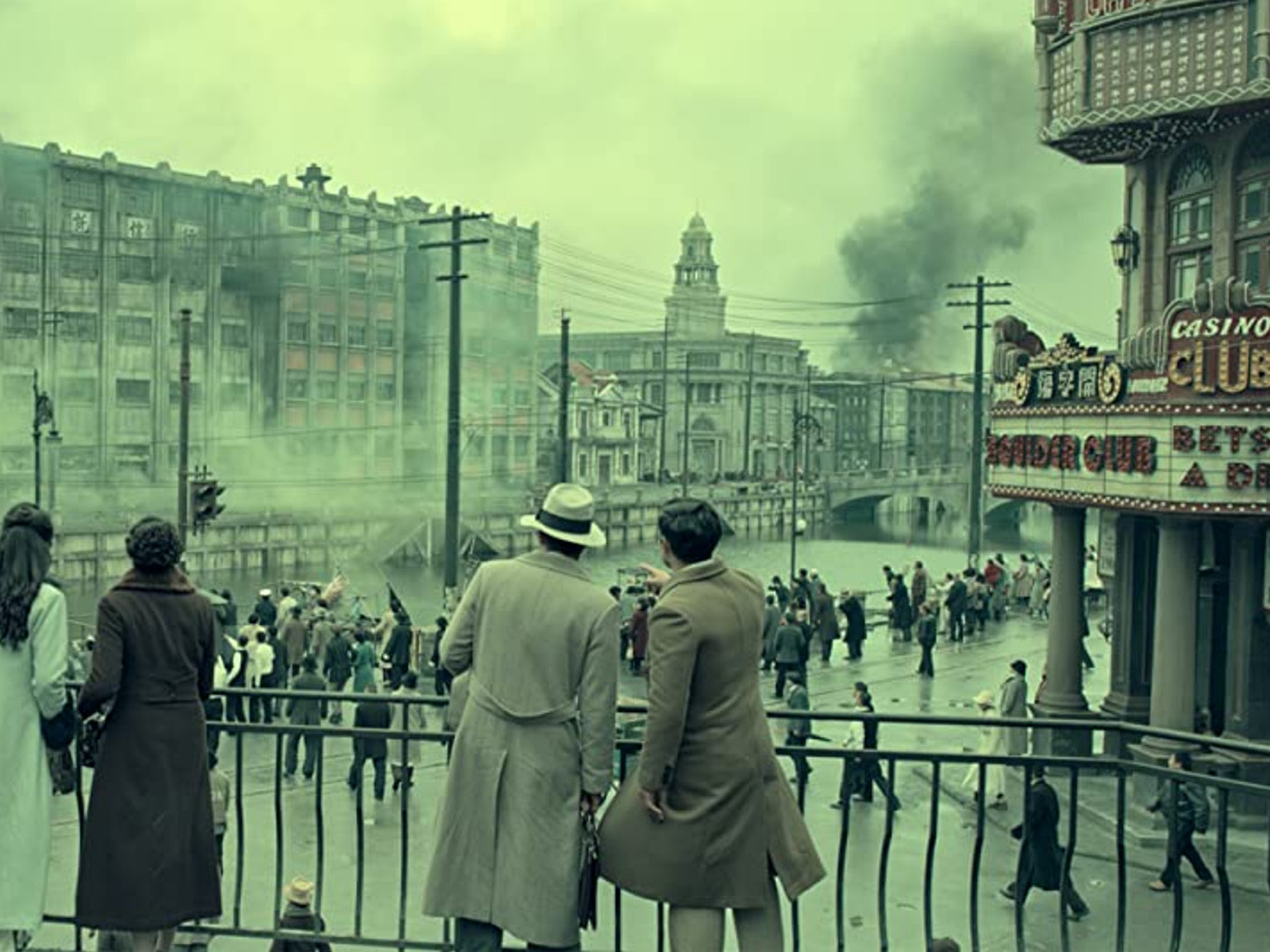
- Golden Globe Awards
The Eight Hundred (China)
This is the film that made it against Covid, earning $500 million on worldwide screens to become the highest-grossing film of 2020. The Eight Hundred is already a winner as it helped to keep open some of the cinemas around the entire world. If you love history, you are in for the most epic battles ever fought by the Chinese against the Japanese during the invasion of Shanghai in October 1937. And if you love movies, this is spectacular, but also extremely violent like war can be. It is also riveting and magical.
The first shot on the screen is a field of wild tall grass. A rat comes in the foreground looking curious, with long whiskers, sharp teeth. The ground trembles, the rat scurries away. As director of photography, Cao Yu swoops and tracks with his camera through the fields showing the Army of Japan invading China: a great number of soldiers moving in impeccable discipline chasing others who scramble for their life.
Once you realize who is who, we meet the charismatic Chinese Commander Xie Jinyuan (Chan Du). Exhausted and battle-weary, he knows that to hold off the Japanese he must defend the Si Hang Warehouse, a 5 story building. Surely a fight to the death is needed to slow down the foreign invasion while the high command regroups the lost Chinese Army. The young commander, Xie, finds himself with 400 of his soldiers and the rest a stray bunch of frightened souls: soldiers who lost their battalion or simply deserters. Some try to run away through subterranean water canals. Some are shot before war quickly resumes. It’s chaos. Fear paralyzes the human body.
Given the depiction of the battles in realistic and therefore gruesome detail, the film focuses also on individual soldiers and their personal stories: a farmer, his uncle and a younger brother; a handful of seasoned veterans; an analytical fighter; a professional soldier; a journalist; a photographer both welcomed but looked upon with suspicion.
We see the battle also from the other side of the large river, where life goes on like a sort of Las Vegas of the ’30s. Night lights, casinos, bars, entertainment – an eerie denial.
International news agencies report the war as they see it happening live on the other side of the river. Newsreels are also shot from a free-flying Zeppelin that hovers over the two cities, documenting one of the most gut-wrenching scenes. The raising of a national flag on the rooftop of the warehouse is one of the hardest scenes to watch, and yet you want to watch. Director Hu Guan seems to love showing violence in all his brutality, but he offers some magical moments: the white horse riding in the middle of the war-torn building is sheer poetry.